There may be a change in Iranian policy towards the US due to Iran’s economic and coronavirus difficulties.
Will the COVID-19 pandemic in Iran lead to regime change or a shift in Tehran’s nuclear policy?
Various assessments have been written about Iran’s economic situation following the crippling sanctions that have been imposed on it, some reflecting doubts about their effectiveness. After almost two decades of increasingly severe sanctions (excepting the period between 2015 and 2018), the Iranian regime’s extraordinary resilience can almost be admired. In the past, whenever it has been predicted that the regime would not succeed in weathering a catastrophe, the Iranian phoenix has risen from the ashes.
In November 2019, for example, the country’s desperate economic situation brought millions out into the streets in protest, and these demonstrations were brutally suppressed. Once again, experts viewed these protests as a threat to the survival of the Iranian regime. The fundamental change in the public dissent of November 2019 was the blaming of the regime for the people’s troubles instead of the US sanctions regime. The frustration of the masses was reflected in the elections to the Majles in February 2020, with the national participation rate falling to 42 percent (and in Tehran to 22 percent!) – the lowest voter turnout since the Islamic revolution in 1979.
This unprecedented crisis of confidence between the Iranian public and the leadership was amplified by the downing of the Ukrainian passenger plane. Once again, the Iranian leadership was seen to be lying to the people. The rift between the people and the regime intensified after the assassination of General Soleimani, one of the regime’s senior officials, by the US (an event bearing strategic significance) and the imposition of further sanctions.
Then came the outbreak of the coronavirus, which has seriously hit Iranian society, economy and regime. The COVID-19 crisis has made plain, for the first time, the link between the harsh economic reality, in which there is no adequate infrastructure in the country, and the existential threat to the citizen.
The number of reported cases of coronavirus in Iran is 21,368, and the number of deaths is at least 1,700 (as of late March), and it could be much higher. The Iranian citizen has been exposed to the regime’s helplessness and powerlessness in managing the crisis and to its continued propaganda of lies, a cornerstone of the Iranian regime’s conduct. Trust is a key component in managing crises such as this one.
A look inside the Iranian health system reveals doctors telling the public that there is nothing they can do because they don’t have the basic preventive infrastructure to fight the disease, and many of them are becoming infected themselves.
As if that wasn’t enough, in recent days another type of plague has struck Iran. Huge swarms of locusts have wiped out agriculture in the country’s south. This development has only heightened the citizens’ and the regime’s sense of helplessness.
The country also has recently suffered economic blows. The international Financial Action Task Force (FATF) on money laundering and terrorism financing announced at its conference in Paris (February 19-21) that it had added Iran to the organization’s blacklist (which has until now “starred” only North Korea).
The move came after years of discussions between the organization and Iran, during which the latter refused to pass legislation adopting international laws on the financing of terrorism and money laundering. The implication of such a declaration is the further closure of international financial institutions to Iranian companies and businesspeople.
The Iranian regime, which has been facing increasing economic pressure in light of the sanctions, and as a result growing protest and anger among a significant portion of the Iranian public, is now facing a different kind of threat; one that, at least at this stage, the regime seems to be having a very hard time dealing with.
Its initial response to the outbreak of the coronavirus was smugness and arrogance. When the government realized the scope of the epidemic in China, it lied to the public, saying that it had stopped all flights to that country, when in fact flights were operating as usual. It was only at a very late stage that the regime began to enact preventative measures, but not before it had caused the virus to spread to its allies, Lebanon and Iraq.
At this point, the regime began to undertake a series of measures that, from the outside, looked like a response to the virus, but which could also be interpreted as genuine concern over the public’s reaction and a desire to protect itself. The government ordered a ban on mass prayers, the closure of particularly important mosques in the city of Qom and throughout Iran, and the prohibition of movement between cities. The order had already been given that the military and the Revolutionary Guards would form an important component of the fight against the coronavirus, and some 85,000 criminal and security prisoners were released from jail.
The critical decision to order a total lockdown in the face of the raging pandemic was not taken, as such a move would have caused the Iranian economy to collapse completely and led to devastating consequences for the regime.
The Iranian regime understands that under heavy sanctions and international isolation it will be difficult, if not impossible, to fight the COVID-19 pandemic. That is why Foreign Minister Zarif made a dramatic call to the international community, saying: “I urge the world body – and member states – to disregard the inhuman US sanctions on my country. And insist that they be lifted. As COVID-19 ravages Iran, we should recognize that viruses don’t discriminate. To fight them, neither should humans.”
In a letter to the UN Secretary-General, he added, among other things, “The government of the United States’ general collective punishment of the Iranian people – including by depriving them from humanitarian trade, in contravention of repeated sloganeering to the contrary – is clear. What has hitherto, and unfortunately, been less clear to the international community is how US economic terrorism is specifically – and directly – undermining our efforts to fight the COVID-19 epidemic in Iran.”
These calls by the Iranians aim to show that they are persevering, and that even the coronavirus crisis will not bring them down. On the one hand, they are trying to push a wedge between the international community and the US and play the humanitarian card, and on the other, they are stepping up their attacks against American targets through their protégés, the Hezbollah militias in Iraq.
It is worth examining American behavior in the face of these Iranian moves. On the eve of the outbreak of the corona epidemic, there was a decision by the US government to significantly increase sanctions and economic pressure on Iran. Government officials and President Trump have continued to apply “maximum pressure” on Iran, as well as on Lebanon and Iraq.
But today, what concerns the US government most of all is the COVID-19 crisis, and it is unclear how much attention it is giving to the emerging reality in Iran. The Americans do not want the coronavirus to spiral out of control in Iran and pose a biological threat to the Middle East, but on the other hand, it is precisely the corona pandemic that serves the American interest, as it deepens Iran’s economic, social and political crisis. The US decision at this point has been not to ease sanctions. Despite the coronavirus, last week it even imposed additional sanctions on several Iranian companies.
At the same time, however, the State Department declared that “The United States stands with the people of Iran during the public health crisis caused by the outbreak of the novel coronavirus. The US Government is prepared to assist the Iranian people.” The State Department added: “Persons interested in providing support to the Iranian people should note that certain donations to Iran intended to relieve human suffering, including the donation of medicine, are exempt from US sanctions. In addition, the United States maintains broad exceptions and authorizations to its sanctions for the commercial export of food, medicine, medical devices, and agricultural products to Iran.” The Americans also approved the establishment of a channel between Switzerland and Iran through which medicine and agricultural equipment will be transferred.
The Iranians refused the American offer of assistance. Iran’s supreme leader even argued that there may be some truth to the theory that the US is behind the spread of the virus in the world. “I do not know how real this accusation is but when it exists, who in their right mind would trust them to bring them medication?” Khamenei added. “Possibly, their medicine is a way to spread the virus more.”
Is the coronavirus crisis bringing the international system and Iran to a turning point? It is very difficult to predict anything in these uncertain times, but some working assumptions can be made that point to the possibility that we are indeed at the beginning of a new reality.
Four key elements influence decision-making in Iran. Firstly, the economic burden it is under is reaching new levels. The sanctions on senior officials, India’s decision to stop procuring oil from Iran, the dramatic drop in global oil prices (a critical source of income for Iran), and the costs of the war against the coronavirus have all placed the Iranian economy in the harshest reality it has known since the beginning of the economic campaign against it.
Secondly, Iran’s satellites, Soleimani’s flagship enterprise, are gradually collapsing. Iraq and Lebanon have found themselves in an unprecedented economic crisis for which their publics blame Iran and Hezbollah, Iran has no money to continue maintaining these satellites, and the coronavirus is raging within them, partly as a result of failed Iranian policy and the “export of the virus.”
Thirdly, for the first time in the campaign against Iran, the regime’s senior officials (as well as some members of Hezbollah’s leadership) are facing an existential threat. The coronavirus threatens first and foremost the leaders of the revolution (who are in the highest risk group due to their age). Moreover, as the epidemic rages on and causes harm to the Iranian people, it can be assumed that the regime’s control over the violent forces it operates will diminish. This has clear implications for the survival of the Iranian regime. The leadership understands where the sanctions and the demonstrations against the regime have failed, the coronavirus may eventually succeed.
Fourthly, it is plain to the Iranian leadership that even if a solution to the coronavirus is found, the divide between the people and the regime will have been greatly exacerbated, and the extent of the catastrophe and the regime’s powerlessness will have been exposed. It can therefore be assessed that all of these elements are confronting decision-makers in Iran, and are certainly “pushing” toward the reaching of an agreement with the US and the world.
As for the Americans, though the US is completely immersed in the management of the COVID-19 crisis on its home turf, its conduct vis-à-vis the Iranians during this period could prove to be decisive. Paradoxically, the corona crisis serves American interests in Iran, as it has dealt an almost lethal blow to the regime’s economic and civic capabilities and has brought the public’s trust in the regime to an all-time low. In such a reality, it should be clear to the Americans that a scenario could arise in which the efforts to eradicate the virus create the right conditions for negotiations between the Iranian regime and the United States.
For President Trump, who is in the midst of managing a crisis but also in an election year, this could be a perfect opportunity to achieve three things: a new nuclear agreement with Iran (including, perhaps, a Nobel Prize…), the acceleration of financial markets in the US and the world, and a significant position of strength in the campaign for another four years of service as president.
However, even under the working assumption that both parties are currently very interested in reaching an agreement, this will not necessarily lead them down this path, as the matter of “honor” comes above all else. In the reality of “who will blink first?” it can be anticipated, based on past experience, that as Iranian despair intensifies, it will push the regime, out of lack of choice, to try to reach a new agreement with the Americans. Otherwise, the coronavirus and its consequences could put an end to the regime, to whom it is clear that without the lifting of sanctions and international aid, they may not survive. Before this, however, they may try to drag the Americans and the Middle East into violent conflicts, which in their view are the ultimate route, but at the same time explain within Iran that such an agreement, if there is one, comes from a position of power and is the result of a divine force (the coronavirus).
JISS Policy Papers are published through the generosity of the Greg Rosshandler Family.
photo: Bigstock

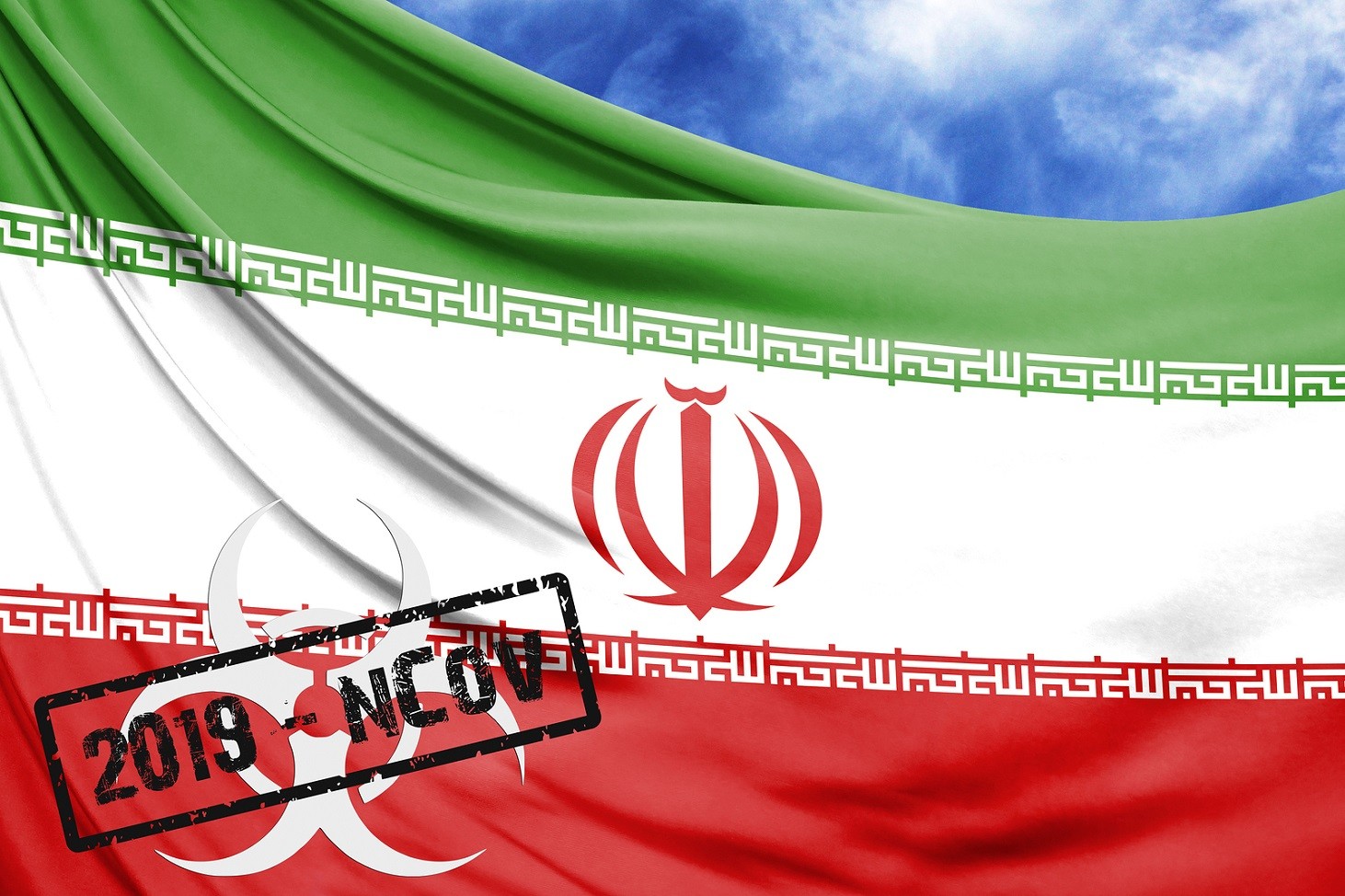
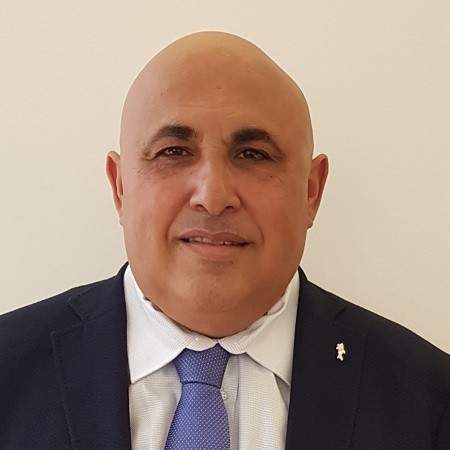
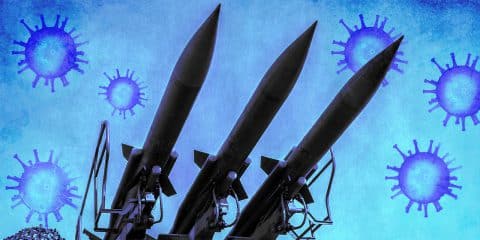

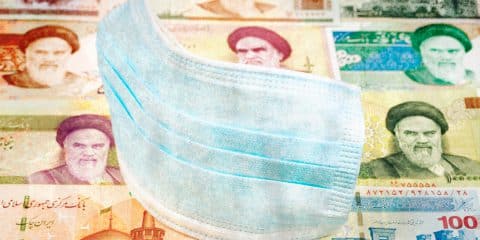

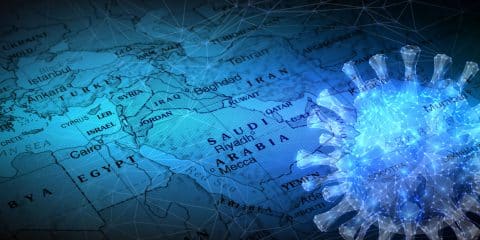

 - בניית אתרים
- בניית אתרים